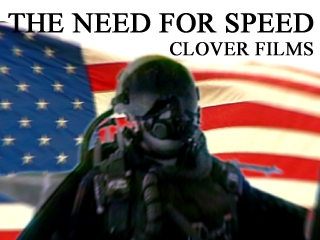The Need For Speed
The shocking truth about the US Airforce's drugging of its pilots
 We are taught to accept that the accidental killing of innocent civilians, and soldiers in friendly fire, is just one of the sad realities of war. But what if we were told that those ill-fated gunshots and bomb blasts were the direct result of relentless military drug-pushing? In this damning investigation, award-winning journalist Jamie Doran explores the allegation that US air crews are being fed amphetamine pills "like candy".
We are taught to accept that the accidental killing of innocent civilians, and soldiers in friendly fire, is just one of the sad realities of war. But what if we were told that those ill-fated gunshots and bomb blasts were the direct result of relentless military drug-pushing? In this damning investigation, award-winning journalist Jamie Doran explores the allegation that US air crews are being fed amphetamine pills "like candy".
Compounded with the natural amphetamines produced by the body in the stress of battle, dexedrine can put soldiers into a dreamlike trance, opening fire with no sense of reality. It's "like driving when you're drunk," says one. "You think you can do anything, but in reality, you can't." Another admits to singing and dancing in the cockpit. Worst of all, dexedrine induces such paranoia that even fellow soldiers at rest - or Kosovan families fleeing on tractors - suddenly look like enemy snipers. Frighteningly, during Operation Desert Storm, 60% of airmen were fighting under its influence - a figure rising to 95% in intense conflict. Such gung-ho Go-Pill-popping calls for regular use of sedatives, otherwise they'd never sleep. Military officials maintain that dexedrine use is voluntary. Yet professors question the legality of the contract, whose wording makes it almost impossible to refuse, while pharmaceutical and military experts testify to the drug's devastating effects on users. Many airmen are incensed at being treated "like pharmaceutical guinea pigs," and the grief-stricken faces of their victims' families illustrate the human cost of this so-called "fatigue management". A commercial airline pilot caught under the influence of speed would be forbidden to fly, possibly even dismissed. So why is the Pentagon allowing this shocking practice to continue in the military, unnecessarily laying waste to countless lives and rendering itself unworthy of our trust? LEARN MORE.
WATCH MORE.
JOIN THE DISCUSSION.

